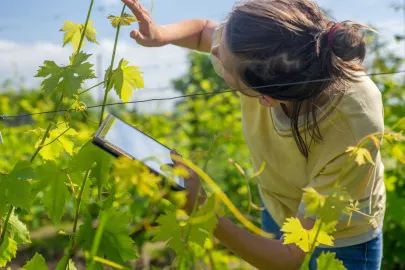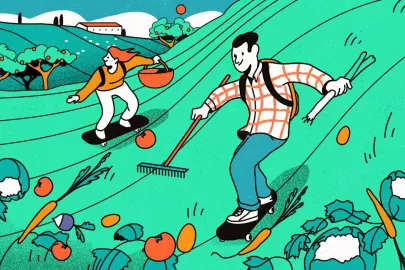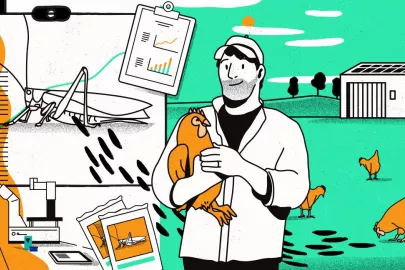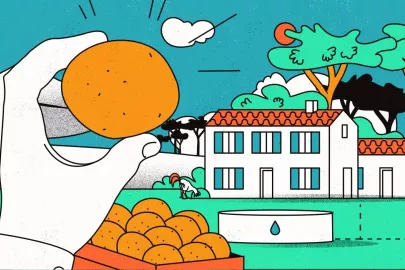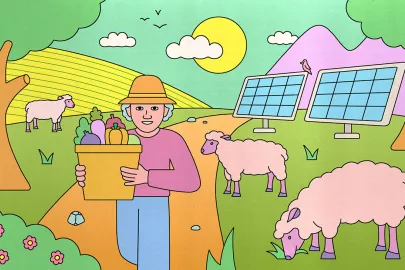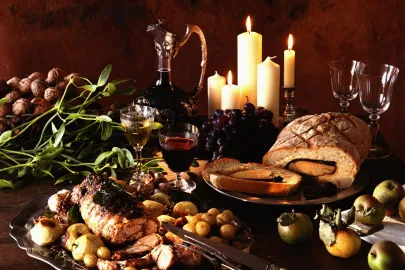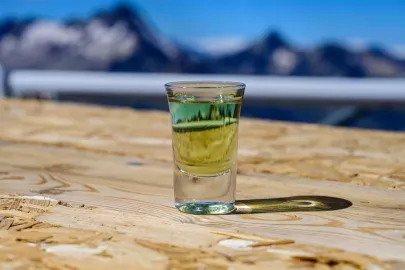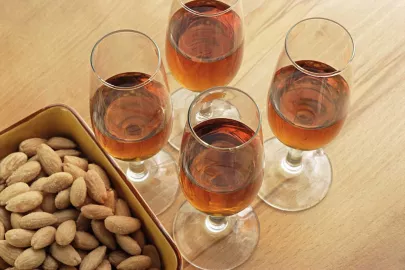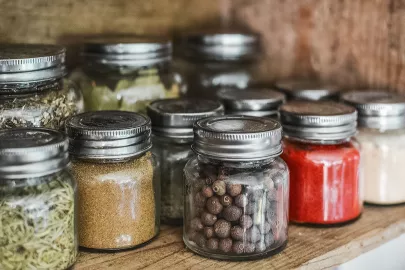Every year in France – and elsewhere – farmers are employing ever-more ingenious methods to combat the devastating effects of rising temperatures and increased drought…
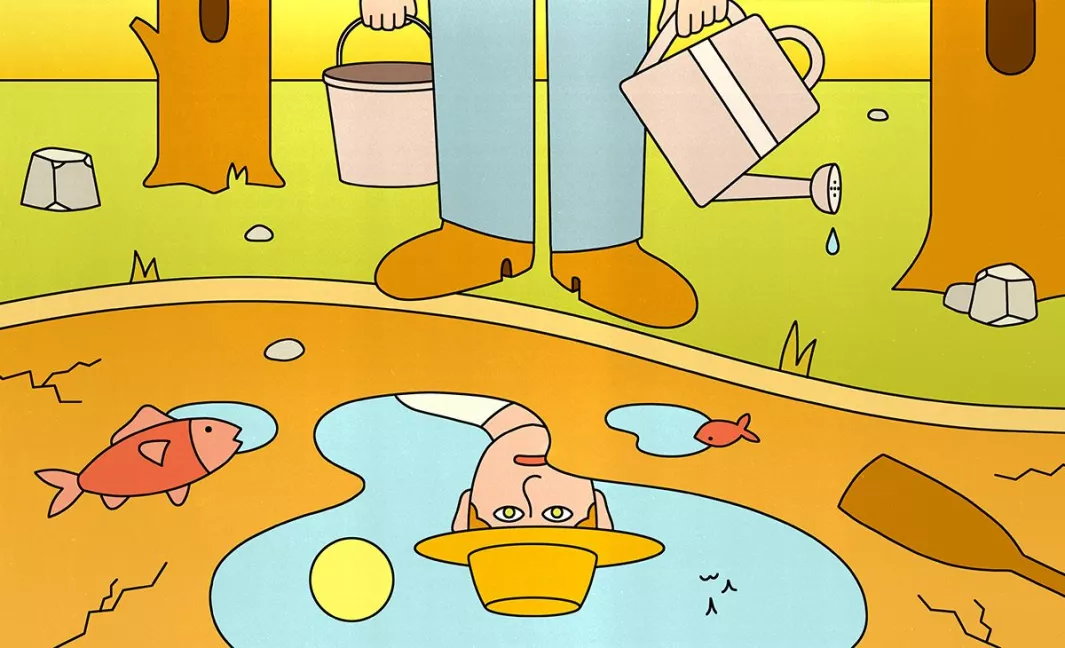
At the time of writing, a major heat wave is enveloping mainland France. A perceived temperature of 38°C is expected in coming days in Paris, and 39°C in Biarritz, in southeastern France. Such a heat wave is abnormal for June. In recent weeks, market gardeners, cereal growers and wine producers across the whole of France have been expressing their concern. Take, for example, William Revoil. This olive grower in Les Alpilles – one hour from Marseille – typically relies on the water from channels in the neighboring river to irrigate his olive groves.
But that won’t be possible in coming weeks: he will be facing significant water restrictions, with a resulting risk of serious damage to his crops. Such temperature rises have become a sad reality in recent years. In France, for example, 62 episodes of drought were recorded between 1991 and 2015, compared to 13 between 1964 and 1990.
So, in response to global warming, some producers are devising stratagems… In the northern half of France, winegrowers are planting southern grape varieties which are naturally more resistant to drought and rising temperatures, such as Vermentino and Syrah. In the Hérault department, market gardener Pascal Poot is now famous for his “dry garden”. On his eight hectares of land, Pascal – who is something of a seed enthusiast – cultivates fruits with variegated colors, including some plants which grow between rocks or amid undergrowth, with the simple addition of compost from his cattle.
His secret? Allow plants to regulate themselves by developing their own natural resistance to heat shock. In Charente-Maritime, in western France, market gardeners Thibaud Peschard and Olivia Chouquet have carried on the techniques of the property’s former owner, making extensive use of the drip system. Irrigation pipes placed along the rows of vegetables considerably reduce water consumption by limiting evaporation and providing the plants with only the resources they need.
And outside France, the story is the same. In Senegal, Gora NDiaye – head of the Kaydara agro-ecological farm school – is growing vegetables in the middle of the desert by adapting the tenets of permaculture to his surrounding environment. Better still, he is working to train project leaders to create other self-sufficient organic farms. In Germany, Ulrike Windsperger – an author and permaculture pioneer in her country – runs dozens of training sessions every year to raise market gardeners’ awareness of the importance of saving and optimizing water resources. Ditto in the United States, where Eliot Coleman (a leading light in organic market gardening) has written books in which he urges budding farmers to choose their future land according to available water resources (wells, springs, etc.) to ensure they will be able to offset the devastating effects of increased drought.
Each of these approaches is a testament to the remarkable adaptability of farmers in France and around world as they seek to adapt to a new climate landscape.
Contributor

Editor

